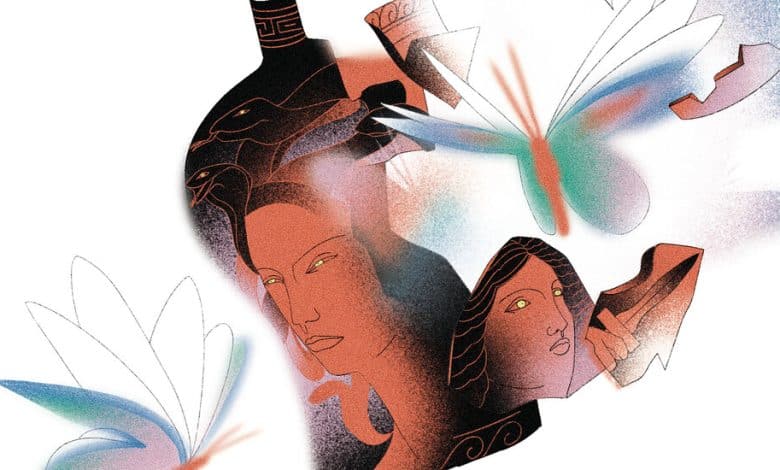The Women of Greek Myths Are Finally Talking Back

For centuries, the Greek Gorgon Medusa has been cast as a vicious monster, a beastly woman with writhing snakes for hair and a deadly gaze that turns living creatures to stone.
Several years ago, when Nataly Gruender was studying classics as an undergraduate at the University of Arizona, she started to wonder if there was more to Medusa’s story.
Scattered references in Greek and Roman works by Hesiod, Apollodorus and Ovid described her death at the hands of the hero Perseus, but also hinted at a fuller life. In Ovid’s telling, Medusa wasn’t born a monster, but was turned into one as punishment by the goddess Athena, after Medusa was raped by the sea-god Poseidon in Athena’s temple.
Drawing on the fragments she could find, and adding scenes to flesh out Medusa’s narrative, Gruender wrote her own version of the myth. “Often, you only really get to see her as a decapitated head in Perseus’ hand,” Gruender said. “I really wanted to give her a voice and tell the story from her perspective.”
She imagined a climactic moment in which Medusa confronts Athena and asks the goddess why she, the victim, was unjustly punished, and added a noncanonical love affair between Medusa and a female water nymph. “I’m queer, so I wanted to see that reflected in her,” Gruender said. “I was like, you know, she deserves one nice thing.”
